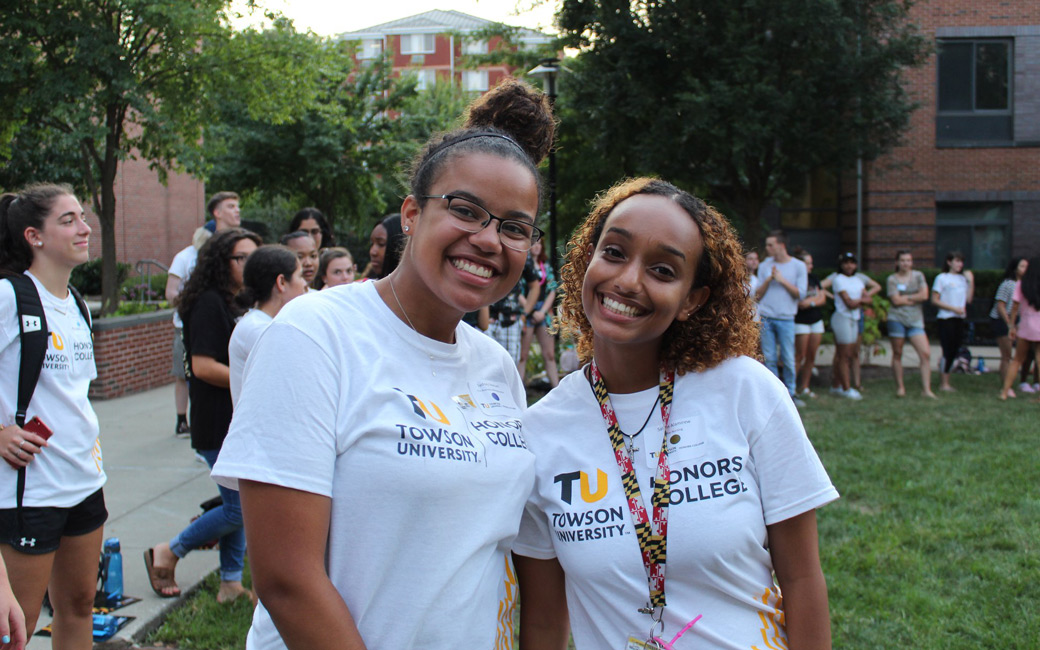Orientation

Honors Orientation is a mandatory, free program designed to introduce incoming students to the foundations of undergraduate honors education and is offered in both the fall and spring terms. During Honors Orientation, students will have the opportunity to:
- Learn about important requirements and specialized Honors resources
- Meet upper-class Honors students
- Develop relationships with other Honors students, Honors faculty, and staff members
- Obtain information about competitive fellowships and awards
- Become involved in Honors student life programs
Orientation for Honors students admitted for the fall is will be held on the Wednesday and Thursday prior to the start of the fall term. Both days are required for successful completion of the program. The dates for Fall 2026 Honors Orientation will be announced in late spring 2026.
Honors Orientation is separate from campus-wide New Student Orientation overseen by the office of New Student and Family Programs. That program is mandatory for all new TU students and incurs a fee. Contact New Student and Family Programs with any questions regarding New Student Orientation.
Fall 2026 Orientation
Check back for information in late spring 2026!
Honors College Common Read
A common read is a required part of the Honors Orientation experience in August. This program provides an opportunity for Honors students to explore issues that contribute to the development of critical thinking skills while fostering intellectual ties between Honors students, faculty, and staff.
The goals of the Honors College Read are:
- Provide incoming students a chance to connect with other students
- Provide incoming students simulated classroom discussion experience led by faculty
- Provide students with a learning opportunity that relates to the academic expectations of the Honors College
- Create an opportunity for critical thinking and ethical engagement
Honors Orientation 2026 Common Read
Title to be announced in late spring 2026!
Spring 2026 Orientation
Spring Honors Orientation is required for incoming freshmen and students transferring from other institutions who join TU or the Honors College for Spring 2026. There is no cost to attend. Enrolled incoming students are required to register online to confirm their attendance at Honors Orientation, and details on the program will be communicated to admitted students in their decision letter in January 2026.